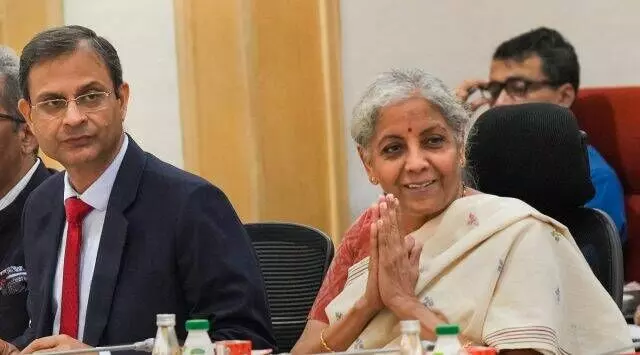Progressive decisions?

The 50th Goods and Services Tax (GST) Council meeting, held on July 11, has offered two key takeaways that will have a significant impact on the Indian economy. The first highlight involves the approval of the long-debated decision to impose a 28 per cent tax on online gaming firms and casinos. The second highlight focuses on the council's determination to introduce stricter regulations for the indirect tax regime. These measures aim to enhance compliance and curb fraudulent activities within the system. In a landmark move, the GST Council has resolved the online gaming tax conundrum, which had been the subject of debate for the past years. The decision to impose a 28 per cent tax on online gaming firms and casinos is expected to generate substantial revenue for the government. This tax will not only provide a level playing field for traditional brick-and-mortar casinos but also address concerns regarding the potential social and economic implications of online gambling. Additionally, the council aims to strengthen the indirect tax regime through several regulatory measures. The Goods and Services Tax Network (GSTN) will now be brought under the Prevention of Money Laundering Act (PMLA). This step is intended to enhance the accountability and transparency of the GSTN, ensuring that it aligns with the highest standards of financial integrity. However, at least initially, this move has not gone well with representatives of certain state governments, particularly those ruled by opposition parties. Delhi’s finance minister highlighted the alleged misuse of Enforcement Directorate (ED), which takes charge of matters related to PMLA, “to harass and arrest people.” Her apprehension is that the inclusion of GSTN under PMLA will lead to sharing of information about all GST taxpayers with the ED. She emphasised the need for discussion at the GST Council that should have preceded the announcement of such a big decision. Irrespective of the merit of the decision, an open-ended debate at the meeting would have been the right course forward. The clarification that discussion will follow the announcement makes little sense and reeks of an unprincipled approach. The Punjab finance minister went a step further to term the decision to be a boost to “tax terrorism” which will be “dangerous for small businesses and the common man”. It is expected that the government will appropriately allay these serious concerns. Towards combating fraudulent practices, the council has further mandated the provision of valid bank account details of registrants and physical verification. These measures will help in curbing fake registrations and fraudulent Input Tax Credit (ITC) claims. By implementing these stricter verification processes, the tax system will become more robust and reliable, protecting honest taxpayers and preventing the misuse of the system. This well-intended decision should be complemented with a flexible approach so that registrants don’t have to suffer. Another noteworthy development arising from the 50th GST Council meeting is the exemption of cancer treatment drugs and special medicines from GST. This exemption will provide much-needed relief to individuals battling cancer and those requiring special medications. Furthermore, satellite launch services provided by private parties have also been exempted, which will foster the growth of the space industry in India. In addition to these exemptions, the council has approved rate reductions for several items. Uncooked and unfried snack pellets, fish soluble paste, imitation zari thread, and LD slag will now attract lower tax rates. These rate reductions are expected to benefit consumers and industries alike, promoting affordability and growth in relevant sectors. The surge in GST collection over the last few months has been an encouraging sign for the Indian government. This surge can be attributed to various reasons, such as improved compliance, economic recovery, and stricter enforcement measures. The government's efforts to streamline the tax collection process and reduce tax evasion have undoubtedly played a significant role in this positive trend. While stricter regulations for greater compliance are undoubtedly a step forward, concerns raised by the chief ministers of Delhi and Punjab, among others, regarding the inclusion of GSTN under the PMLA Act, should not be ignored. It is crucial for the government to address these concerns and ensure that the provisions are well-defined to prevent any potential misuse of power by enforcement agencies. Transparency, accountability, and checks and balances must be in place to protect the rights and privacy of taxpayers while effectively combating money laundering and financial irregularities.



